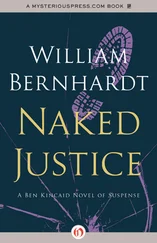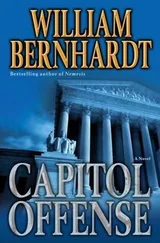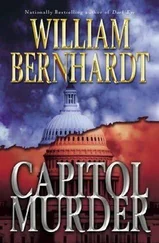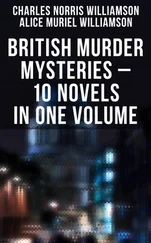“That’s not all he did,” Ben whispered back. “He etched into the jurors’ brains the visceral nature of this crime—that only a truly sick, twisted, sociopath could have committed.”
“Still, he didn’t—”
“Have you noticed how the jurors are looking at Keri?”
Christina turned her head. In fact, many of the select fourteen did appear to be looking her way.
“They’re scrutinizing her, trying to get a fix on what kind of person they think she is. Whether she’s capable of committing this atrocity.”
“We have to convince them that she’s not.”
Ben nodded. “Which is going to be pretty damn hard to do, if she doesn’t take the stand. And she says she doesn’t want to.”
Given all that had transpired since the last trial began, Ben wasn’t sure whether LaBelle would recall Matthews to the stand or not. A few minutes after Callery departed, though, LaBelle answered the question. He did.
Matthews studiously avoided making eye contact with Ben as he strolled confidently to the witness box. Just as well. There was no love lost between the two; that much was certain. And Ben might’ve been tempted to show him the photograph tucked inside his manila folder.
Not ten minutes into Matthews’s testimony, it became clear that he, unlike Callery, would be singing a very different tune this time around. Despite the fact that the previous trial had been mooted on grounds of alleged fraud, there was no reason to believe Judge Cable would rule any differently on the subject of the improperly obtained warrant to search Keri Dalcanton’s apartment. To the contrary, LaBelle knew the ruling would be no different, so he avoided the subject altogether. If the search of the apartment was invalid, then all the evidence obtained during the search, including Keri’s testimony, was inadmissible.
This time, Matthews told the story of his midnight raid on an unspecified law office with a valid search warrant, and how his men had turned up the murder weapon.
This line of questioning had been the subject of intense debate during the pretrial hearings. Ben wanted it excluded altogether; Matthews’s story could only cast negative aspersions on the defendant’s counsel, which was not an acceptable trial tactic. After all, no one had proved Ben had done anything wrong and the charges against him had been dropped. Telling this story could force the defense attorney to testify—to exonerate himself by telling the jury he did not put the knife in his files. This, too, Ben argued, was unacceptable.
LaBelle had argued just as strongly that the evidence had to be admitted. After all, Matthews couldn’t introduce the weapon without explaining when and how it had been found. The murder weapon was a critical part of the defense case and it wasn’t reasonable to expect him to proceed without it. There was nothing illegal about the manner in which it had been obtained; therefore, there was no justification for excluding it.
As judges usually do when confronted with such imponderable contradictions, Judge Cable compromised. Matthews could explain that the weapon had been found in the office of one of Ms. Dalcanton’s legal representatives, but he was precluded from mentioning the attorney’s name. Both LaBelle and Matthews were precluded from suggesting that there was anything improper about the knife being where it was. That’s just where it was, period, no smirks or smart remarks. Like most judicial compromises, it pleased no one, and worse, created a logical gap in the facts that the jury would wonder about for the rest of the trial. Ben hated it when judges precluded the jury from knowing something they were desperate to know; it usually resulted in their imagining something far more complicated and dirty than the reality, and almost always at the defendant’s expense.
“What did you do after you discovered the weapon?” LaBelle asked.
“While wearing gloves, I placed it in a plastic bag to prevent any trace evidence from being lost, then I immediately returned to our downtown headquarters.” Ben noted that Matthews was omitting the minor detail of arresting the attorney on trumped-up charges later dismissed, as well as the police helicopter, the SOT team, and all the other evidence of his obsessive overkill. “I logged in the evidence, assigned it a number which was recorded in two different places, tagged it, lockered it.” Matthews was trying to establish a chain of custody sufficient to thwart any cross-ex attempts to suggest the evidence could have been tampered with after it was found.
“What was done with the weapon after it arrived at police headquarters?” LaBelle asked.
“A battery of tests were performed to determine if it was the murder weapon, and to examine it for any trace evidence, such as blood or fingerprints.”
“Do you know what the results of those tests were?”
What did they take him for? “Objection,” Ben said. “Did Sergeant Matthews perform the tests? I don’t think so.”
“Sustained,” Judge Cable said.
LaBelle continued undaunted. “Have you been able to determine whether that knife was in fact the weapon used to kill Joe McNaughton?”
“Yes,” Matthews said hastily, barely waiting a breath, which was a signal to Ben that the answer was probably improper and he knew it. “The coroner determined conclusively—”
“Objection,” Ben said. “This is not within the witness’s scope of knowledge.”
“Sustained,” Judge Cable said wearily. “Mr. LaBelle, please put the proper evidence on with the proper witness, and stop trying to get everything in with this one much too eager witness.”
“As you wish, your honor,” LaBelle replied, as if he hadn’t actually violated any evidentiary rules but was simply humoring a personal peccadillo of the judge’s. “That’s all I have.”
“Thank you,” the judge said. “Mr. Kincaid?”
As Ben approached the podium, he thought perhaps he detected the tiniest crack in Matthews’s armor, his permaplaqued obnoxious exterior. Could it be Matthews was actually afraid of him? That he was dreading this cross? It would be nice to think so. Of course, the last time Ben had crossed Matthews, he’d gotten the whole case dismissed. If that happened again, Matthews would probably be out of a job.
Alas, no such miracles were in the cards. There was precious little Ben could do, since what Matthews had said was true and wasn’t especially incriminating (at least, not yet). He was tempted to whip out the photo in his folder and accuse Matthews of harassing him and his staff, even planting evidence. But what was the point of impeaching a witness who hadn’t said anything false or incriminating? Ben decided to save that ammo for a time when it would do him more good. He hated to let the creep get off so easily, but when all was said and done, Ben simply asked a few perfunctory questions and let Matthews retake his seat.
The real battle would be fought, not with these remnants from the past trial, but with the new witnesses in the current one because, Ben knew, their testimony would be much more damaging.
32
“THE STATE CALLS CORPORAL James Wesley Jr. to the stand.”
Normally, in Ben’s experience, the first witness after the lunch break had the toughest job—keeping the jurors awake. With this witness, however, Ben knew that wouldn’t be an issue.
In a brief expanse of time, LaBelle established that Wesley was a sixteen-year member of the force, that he was a good friend of Joe McNaughton’s, and that he had worked with McNaughton not long before his death. It seemed that LaBelle, like the jury, was in a hurry to get to the good stuff.
“Did Sergeant McNaughton ever mention Ms. Dalcanton in your presence?” LaBelle asked.
“Oh yeah.” Although Wesley had to be in his forties, he looked much younger, almost baby-faced. “That he did. Repeatedly.”
Читать дальше








